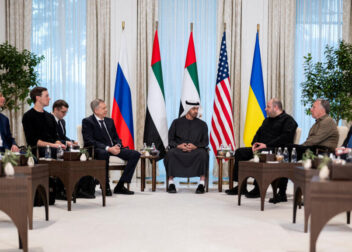India Joins Global Diplomacy Push After U.S. Strikes Iran in Proxy Conflict
On June 22, 2025, the United States launched airstrikes on three Iranian nuclear facilities, escalating tensions in the Israel-Iran proxy conflict and prompting a global call for restraint. Amid this volatile backdrop, India has emerged as a key player in a global diplomacy push, advocating for de-escalation and dialogue to restore stability in the Middle East. Recent reports highlight New Delhi’s measured response, reflecting its strategic balancing act as a rising global power with deep economic and geopolitical stakes in the region. How is India navigating this crisis, and what does its diplomatic approach mean for the world?
India’s response to the U.S. strikes has been swift and deliberate. Prime Minister Narendra Modi expressed “deep concern” over the escalation, urging all parties to pursue “dialogue and diplomacy,” according to official statements. In a phone call with Iranian President Masoud Pezeshkian, Modi reiterated India’s commitment to peace, emphasizing the need to protect nuclear facility safety to avoid catastrophic consequences for public health and the environment. This stance was echoed at the International Atomic Energy Agency (IAEA) Board of Governors meeting, where India underscored the priority of safeguarding nuclear sites, a position shaped by its own experience as a nuclear power.
The U.S. strikes on Iran’s Natanz, Fordo, and Isfahan facilities have intensified fears of a broader Middle East conflict. Experts note that the operation, dubbed “Operation Midnight Hammer,” marked a shift in U.S. policy under President Donald Trump, aligning closely with Israel’s campaign against Iran’s nuclear ambitions. While Israeli Prime Minister Benjamin Netanyahu hailed the strikes as a “historic moment,” global leaders, including the United Nations Secretary-General Antonio Guterres, condemned them as a “grave escalation.” India, wary of being drawn into the conflict, has firmly denied claims circulating on social media that its airspace was used for the strikes, with the Press Information Bureau (PIB) labeling such rumors “fake.”
India’s diplomatic efforts are driven by its significant interests in the Middle East. The region hosts over 9 million Indian expatriates, who remit billions annually, and supplies nearly 60% of India’s crude oil imports. A prolonged conflict could disrupt the Strait of Hormuz, a critical chokepoint for global oil trade, potentially spiking oil prices and fueling inflation in India. Recent reports indicate that India has assured its citizens that current oil supplies remain unaffected, but analysts warn of vulnerabilities if tensions persist. Additionally, India’s trade ties with Iran, including the strategic Chabahar Port project, face uncertainty amid heightened sanctions risks.
New Delhi’s diplomacy also reflects its broader foreign policy of strategic autonomy. By engaging with Iran while maintaining strong ties with the U.S., Israel, and Gulf nations like Saudi Arabia and the UAE, India positions itself as a neutral mediator. This approach aligns with its role in forums like the Shanghai Cooperation Organisation (SCO), where it has avoided endorsing resolutions that could alienate key partners. Posts on X capture mixed sentiments, with some praising India’s restraint and others criticizing its reluctance to condemn the U.S. outright. Yet, India’s call for de-escalation resonates with nations like Japan, Australia, and New Zealand, which have similarly urged a return to talks.
The Israel-Iran conflict poses challenges for India’s domestic politics as well. Opposition leaders have called for a stronger stance against what they term the “Gaza genocide,” while regional parties like the AIMIM have questioned India’s silence on U.S. actions. However, the government’s focus remains on protecting national interests, including the safety of Indian citizens in the region. India has activated contingency plans to evacuate its diaspora if needed, drawing on lessons from past crises.
In conclusion, India’s global diplomacy push underscores its ambition to shape a multipolar world order. By championing dialogue, prioritizing nuclear safety, and safeguarding its economic interests, India navigates the U.S.-Iran-Israel crisis with pragmatism. As the Middle East teeters on the edge, India’s voice—calm yet firm—offers a blueprint for constructive engagement in a fractured global landscape. The road ahead demands vigilance, but India’s commitment to peace could prove pivotal in averting a wider conflict.


